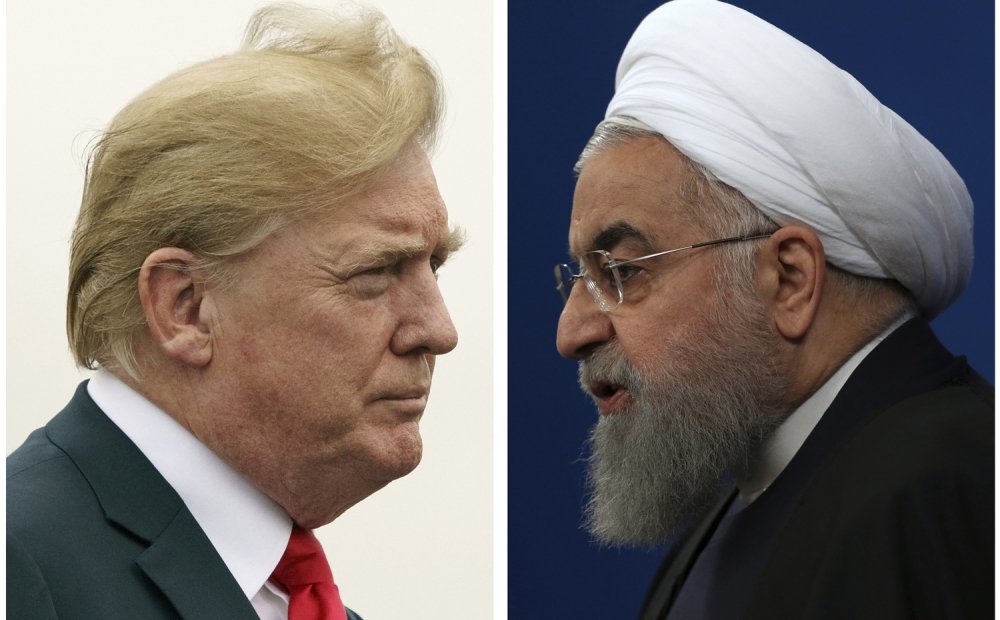Ground Truth Briefing | Iran and the U.S.: New Confrontation, Accommodation, or Muddling Through?

With the Trump administration’s recent imposition of new, tougher sanctions on Iran’s energy and financial sectors, Washington and Tehran have entered a new and potentially more volatile phase in their already combustible relationship. It is not clear – beyond the Trump administration’s desire to increase pressure on the Iranian regime and the regime’s efforts to resist it – what each side wants to achieve. In this Ground Truth Briefing, four veteran analysts address this dynamic situation.
Selected Quotes
Aaron David Miller
“In many instances the Trump Administration’s rhetoric has exceeded its capacity or desire to act, it does have a policy – it’s coordinated, it’s coherent, it’s cohesive, and centered around ramping up tremendous pressure both political and economic.”
“The reality is, the way we look at Iran we deny the Iranians any legitimacy to their own national interests and that’s, I think part of the problem here.”
“I think we’re caught ultimately between a goal of regime change, which we can’t secure and a putative negotiation with Iranians that I think this Administration would be very hard-pressed to accept, and so we drift.”
Suzanne Maloney
“We know that its [reinstatement of sanctions] have already inflicted severe strains on Iran’s economy, and I think what we’re also seeing to date is a certain degree of tactical success that even the sceptics of the President’s decision, and certainly even critics of the President’s decision six months ago, really didn’t anticipate.”
“What we’ve seen is a stampede for the exits by most major European industries, by most major banks. This has had a very considerable impact on the Iranian economy in terms of I think, accelerating the slide in the decline of the value of its currency.”
“What we are learning from this episode is that U.S. financial unilateralism can have a real impact. Now what that does in the long term, there are a number of concerns, but in fact we are able to push fairly hard on a target country and see a severe economic impact.”
“What I think we’re seeing in terms of Iranian reaction to date is a readiness, for the moment, a determination to try to wade out the U.S. campaign, there’s a calculation, and this is part of a long strand of thinking within Iran that really pre-dates the Revolution, that endurance strengthens its hand…”
“There’s an enormous amount of unhappiness within Iran, there’s a lot of pressure from both within and without, and I am convinced that the system is in fact approaching some kind of a breaking point, but the idea that we’re going to see a break that leads to a positive transition to a more responsible and more representative regime in Iran is completely fantastical.”
Mark Dubowitz
“I think the administration's overall objective is to do two things: 1) To weaken the regime in Iran. On the assumption that it’s always better to weaken rather than strengthen your enemy. 2) To avoid the lethal Iranian end state that the administration believes we were on path to achieve as a result of the nuclear deal."
“There is one thing that’s clear to me... it’s that President Trump cannot predicate a robust Iran strategy purely around rhetoric. He will increasingly look like a paper tiger if not a twitter tiger if he continues to use tough rhetoric that is not actually backed out by a robust military posture in the Middle East. That does not mean that the U.S. has to use military force. In fact, the more that the Iranians perceive us as being serious about military force, the lower the likelihood we have to use that."
Robert Litwak
“The implicit hope in the Obama administration was that in 15 years, Iran might be in a different kind of place politically.”
“Coercive diplomacy is not possible when you are attempting to achieve a maximalist goal, you have to unpack your objectives and your priorities to achieve a desired outcome, because no state is going to agree to sweeping changes of this kind — changes that essentially would entail regime change.“
“The missing aspect in the administration strategy is any type of inducements. It's heavy on sticks, but it is not clear what the carrots would be if Iran came into compliance other than the ending of the pressure.”
“The winning strategy in 2015, getting Iran to the table and reaching this transactional agreement, was the United States and the world versus Iran focused on bringing Iran into compliance with its non-proliferation obligations under the MPT. Now with the imposition of extraterritorial sanctions, the dynamic shifts to Iran and the world versus the United States. We become the issue. Europe, Russia, China, India are unlikely to comply. The European Union is heavily invested in the JCPOA.”
Speakers


Introduction

Moderator

Hosted By

Middle East Program
The Wilson Center’s Middle East Program serves as a crucial resource for the policymaking community and beyond, providing analyses and research that helps inform US foreign policymaking, stimulates public debate, and expands knowledge about issues in the wider Middle East and North Africa (MENA) region. Read more
